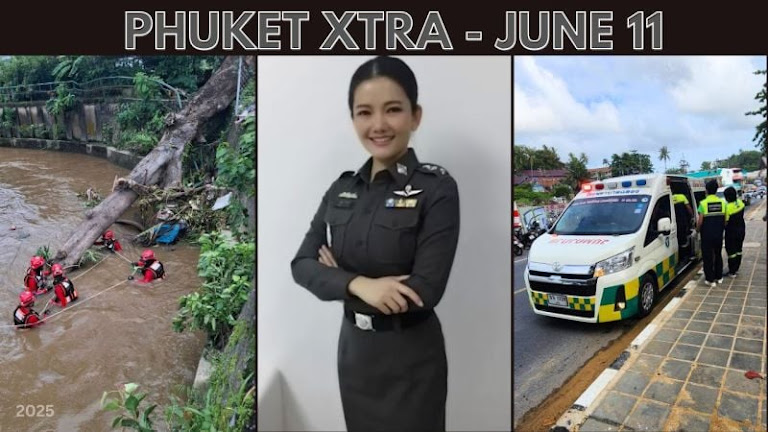Phuket corruption surfaces after tragedy, drug arrest shake island.
Beneath Phuket’s idyllic surface, a grandmother’s canal tragedy and police doctor’s drug arrest expose corruption and public trust erosion.

Today’s “Phuket Xtra” broadcast, as detailed in this recent report, paints a stark picture of the challenges facing even seemingly idyllic locales. Beyond the immediate headlines—the tragic recovery of a grandmother’s body from a canal and the arrest of a police doctor on drug charges—lie deeper systemic issues that demand closer scrutiny. These events aren’t isolated incidents; they are symptoms of complex societal pressures playing out in a specific geographical context.
The recovery of the grandmother’s body raises uncomfortable questions. Was this an accident? Was there foul play? More broadly, it forces us to consider the safety and accessibility of public spaces, especially for vulnerable populations. Are canals properly secured? Is there adequate lighting? Are emergency services equipped to respond quickly and effectively to such incidents? The answers, or lack thereof, reveal a deeper truth about the priorities and capabilities of local governance.
The arrest of a police doctor on drug charges presents an entirely different, yet equally concerning, dimension. This isn’t just about individual misconduct; it’s about the erosion of public trust and the potential for corruption within institutions entrusted with public safety and health. A compromised medical professional within the police force undermines the integrity of the entire system.
Consider the implications:
- Public Trust: The public’s faith in law enforcement and healthcare is severely damaged. This can lead to decreased reporting of crimes and reluctance to seek medical assistance, further destabilizing the community.
- Systemic Corruption: The case suggests potential vulnerabilities in the vetting and oversight processes within the police force and healthcare system. How did this doctor gain access to drugs? What safeguards were missing?
- Impact on Public Health: A compromised police doctor could potentially enable drug trafficking and abuse, exacerbating existing public health problems. It also raises questions about the standard of care provided by other medical professionals within the force.
These events, while specific to Phuket, echo broader global trends. We’re seeing similar patterns of institutional failures, corruption, and public health crises in many parts of the world. What sets Phuket apart, perhaps, is the stark contrast between its image as a tourist paradise and the realities faced by its residents.
The juxtaposition of a tourist haven with underlying problems of governance, public health, and individual tragedies forces us to question the narrative we often consume about seemingly perfect destinations. Are we, as tourists and consumers of media, turning a blind eye to the systemic issues that impact the very communities we visit?
Moving forward, it’s crucial to go beyond superficial observations and engage with the underlying complexities. We need to ask difficult questions, demand accountability from our leaders, and support initiatives that promote transparency and good governance. Otherwise, these “Phuket Xtra” stories will continue to be more than just news—they will be warnings.









